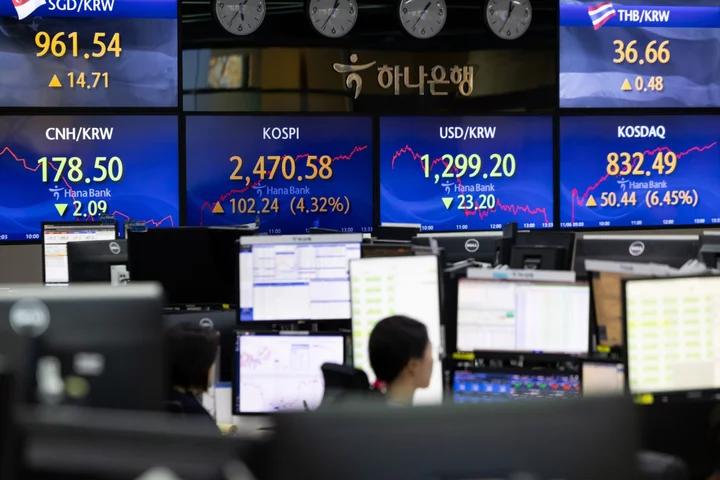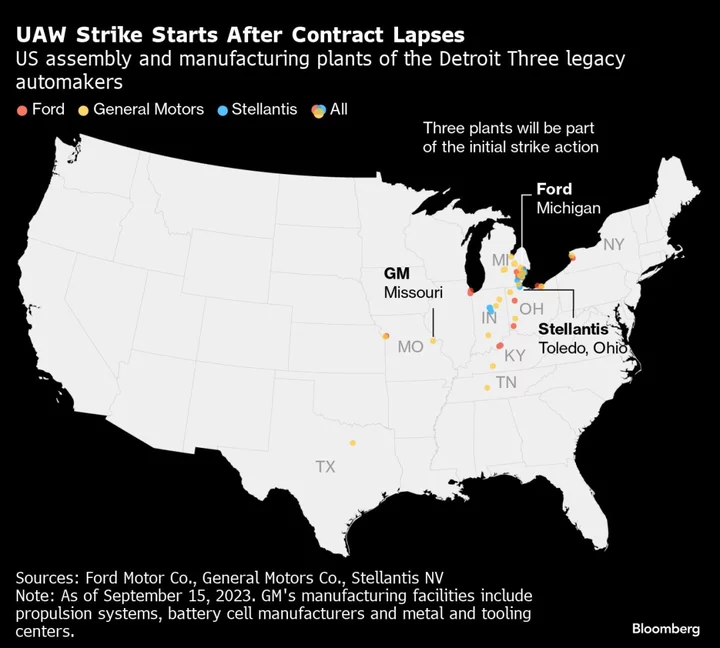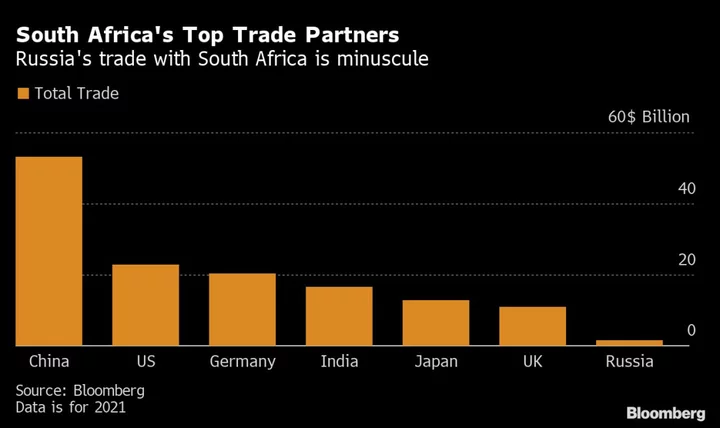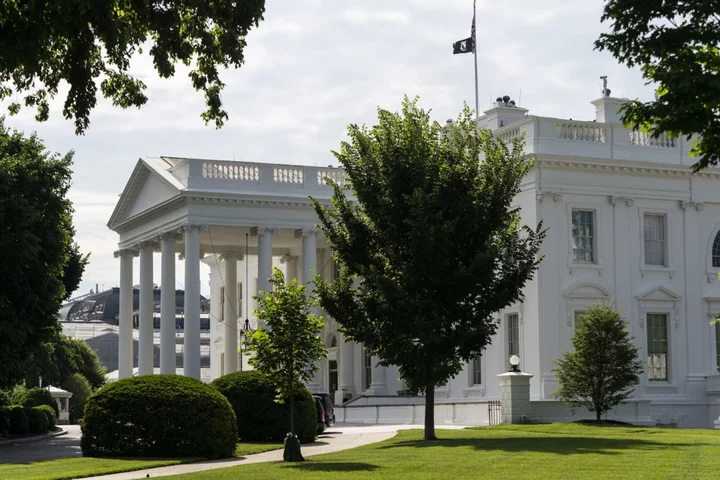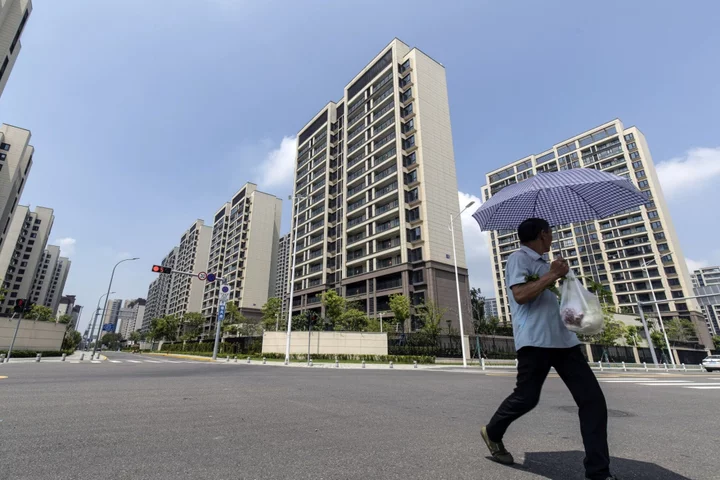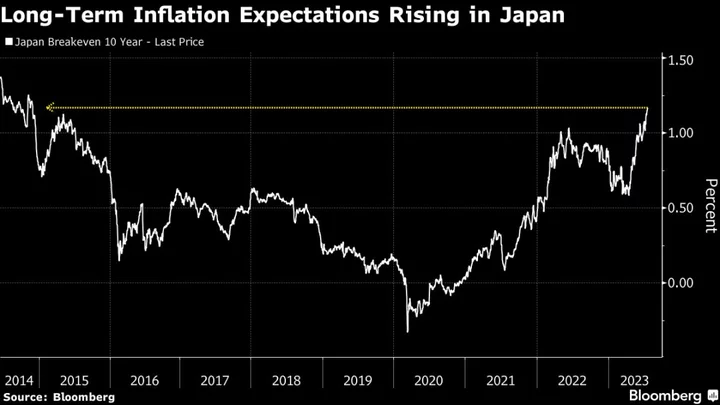Amundi SA posted inflows that surpassed analysts’ estimates in a quarter that saw some of its biggest peers report mixed results.
The Paris-based asset manager saw net inflows of €13.7 billion ($14.5 billion) from clients in the three months through September, it said in a statement Friday. That compares with expectations for €5.8 billion by analysts tracked by Bloomberg. The firm’s medium and long-term products attracted €7.8 billion, driven by its suite of passive products.
Clients looking for safe options for their money invested €3.5 billion in the firm’s treasury products to take advantage of higher yields.
Given the current nature of the market, “we anticipate that this trend will continue until the end of the year,” Chief Executive Officer Valerie Baudson said, commenting on clients’ aversion to risk on a media call.
Asset managers globally have been grappling with risk aversion among customers and shifts in investment priorities amid rising yields. Earlier this month, BlackRock Inc. said clients pulled $13 billion from its long-term investment funds in the third quarter. On Oct. 25, shares of Deutsche Bank AG’ asset management arm DWS Group declined the most in four months after reporting inflows that missed estimates.
Amundi’s assets under management increased for a fourth straight quarter, to €1.97 trillion.
Another positive surprise was the firm’s adjusted net income in the quarter, which rose 3% from a year earlier to €290 million, just above analysts’ estimates. Part of this increase stemmed from the firm’s ability to contain costs.
Amundi’s cost-to-income ratio improved to 54.4% in the third quarter, slightly better than analysts’ expectations, but still above Amundi’s goal of 53% for 2025.
Asia Performance
In Asia, a key region for Amundi where it aims to have €500 billion in assets by 2025, the firm saw inflows of €3.4 billion over the period, bringing its total local assets to €391 billion at the end of September.
CEO Baudson struck a note of caution about the firm’s prospects in China as concerns persist over the ability of the world’s No. 2 economy to rebound.
“We’re much more positive regarding India,” she said. In the South Asian country, Amundi’s joint venture with State Bank of India collected €2 billion in the third quarter.
Earlier this week, UniCredit CEO Andrea Orcel said his firm intended to “rebalance” its relationship with Amundi in a bid to increase the fees it generates from selling investment funds. The partnership, which was sealed in 2017 by Orcel’s predecessor Jean-Pierre Mustier, has been a cause of friction between the two financial institutions.
After signing another tie-up with Azimut Holding SpA last December, Unicredit has scaled down the proportion of Amundi funds in its total assets under management to as little as 15%, Baudson said on the call, adding it is “completely compatible” with their own deal, which runs through July 2027.


